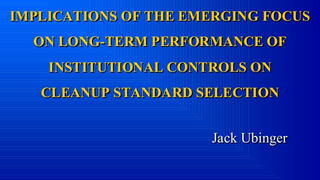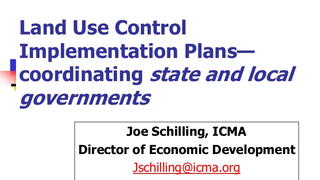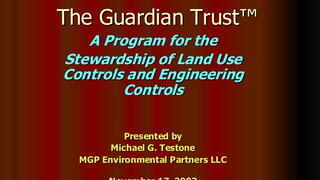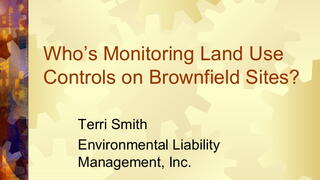
Getting to Smart Growth II follows on the heels of the extremely popular first volume of Getting to Smart Growth.

This presentation provides information on doctrine and standards of risk-based corrective actions.

Joe Schilling, Director of Community and Economic Development at the International City/County Management Association (ICMA), gave this presentation(...)

Michael Testone of MGP Environmental Partners LLC made this presentation at the Business of Brownfields Conference in Pittsburgh, PA on November 17, 2003.

This presentation by Terri Smith, Environmental Liability Management, Inc., was given at the Business of Brownfields Conference in Pittsburgh, PA on November 17, 2003.
The program is a series of professionally led sessions designed to teach citizens about the city of Hickory and the services it provides.

